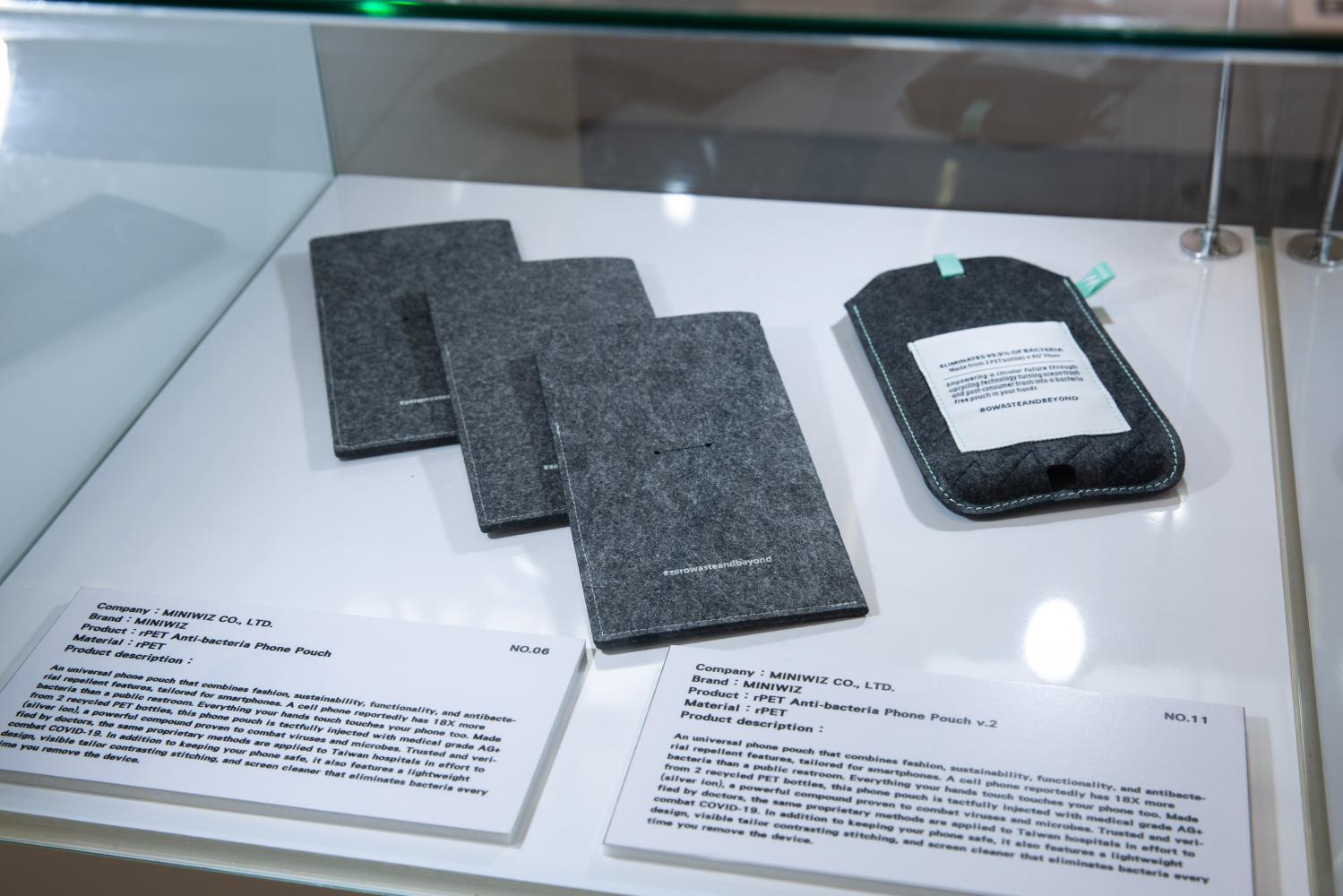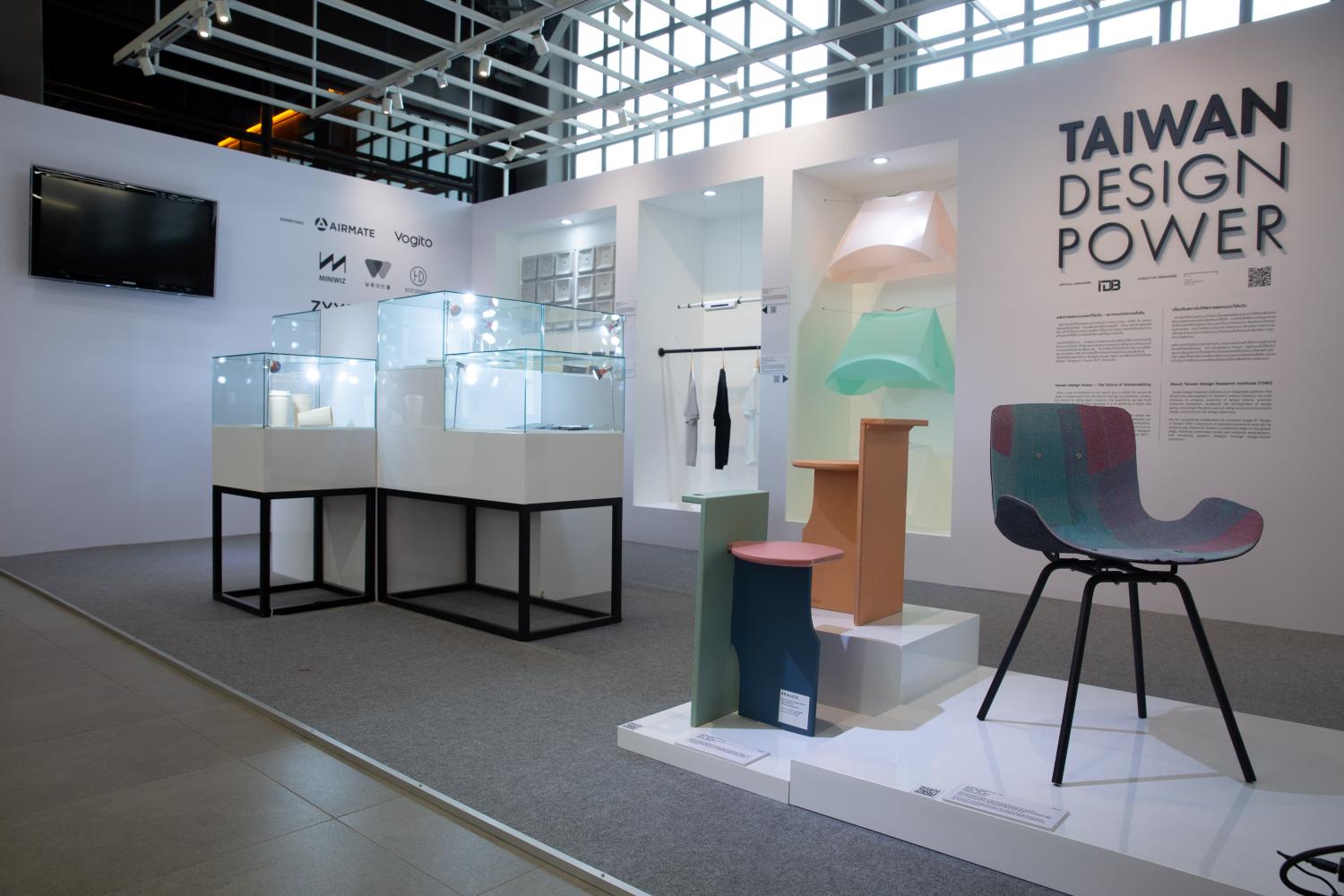As people become more aware of the waste crisis and search for smart solutions to survive a pandemic, the Taiwan Design Research Institute (TDRI) has joined hands with Bangkok Design Week 2021 with the exhibition "Taiwan Design Power – The Future Of Sustainability".
TCDC is temporarily closed due to strict disease control measures but visitors can go to tdri.org.tw and bangkokdesignweek.com to see an interesting collection of 14 functional products from skilled manufacturers and new-wave designers that integrate cutting-edge technology with local wisdom that can help save the world while also facilitating modern living.
"Taiwan was once regarded as the world's design capital. For several years, Taiwan Design Research Institute has teamed up with creative manufacturers, new-wave creators and skilful designers to develop a variety of smart products made from recycled materials or electronic waste to enhance people's quality of life. Focusing on sustainability is a good example of strengthening the design industry," said Dararat Mekkriengkrai, a material specialist at the Material and Design Innovation Center.
In Taiwan, the government and designers have made an effort to establish a system that can be the catalyst for advances in accessibility, affordability, reliability and sustainability. TDRI is a multi-platform initiative that aims to stimulate creativity and speedy policy development, and promote public service and social innovation design.
"Like other countries, Taiwan has been dealing with the Covid-19 pandemic for the past year and a group of Taiwanese designers have come up with innovations such as closet UV sterilisers to make daily life easier amid Covid-19. They've learned to transform waste into alternative materials to ensure resource efficiency and their designs respond to the demands of everyday existence," Dararat said.

The wireless closet UVC steriliser by Airmate and the Sunspa UV folding steriliser by Vogito Innovation.
On view, Dotdesign has used its expertise in visual and product design to produce a series of bamboo "Re-ing" plates. Using light and shadow effects, they're coated with natural food colours to create a rich texture and look like a diamond, making them robust and stable when stacked.
To reduce the amount of traditional paper trash, the plates are perfectly paired with decomposable bamboo fibre cups, which are combustible without any toxicant. They can be washed and reused and the recyclable element is achieved by using a simple line to create the petal with ribs added to strengthen the structure.
Specialising in the application and integration of optoelectronics, electronics and mechatronics technology, Vogito Innovation has come up with a new edition of Sunspa UV folding sterilisers that is ideal for those living in a compact condominium. It can quickly sterilise viruses and bacteria, kill dust mites and deodorise a variety of daily-use items such as pillows, stuffed toys, pet supplies, cutting boards and clothing.

The rPET antibacterial wall and ceiling panels by Miniwiz.
Meanwhile, Airmate, which is famous for its delicate lifestyle appliances, has introduced the wireless closet UVC steriliser with a telescopic extendable structure that can hold tightly onto the walls of a wardrobe.
It features a smart detector that can recognise the amount of clothing and control the UV's light position as well as a Bluetooth function that allows it to last for more than two months on a single charge. It can also eliminate germs, bacteria and bad odours on textiles while providing a warm and fresh feeling of sunlight.
Miniwiz has transformed industrial and household waste into alternative materials. For instance, the rPET anti-bacteria phone pouch is tactfully injected with medical-grade AG+ (silver ion) to fight against viruses and microbes. With tailored contrast stitching, it is lightweight and comes with a screen cleaner that eliminates bacteria every time you remove the device.

The Multy 11 AX Wi-Fi router by Zyxel.
Moreover, due to the 3D pressing technique, the rPET antibacterial wall or ceiling panels are fashioned out of recycled PET felt and nano-coated with recycled aluminium, which can kill 99.9% of bacteria count and repel viruses.
Capturing the trend of fast fashion, Miniwiz has also collaborated with Strongwises to create waste fabric furniture. It is a mixture of modular design and recycled materials such as discarded garments and diaper fabrics to craft fabric-based wood planks, to add value to unwanted clothes.
Moreover, Miniwiz created the iCeramic tableware set using a revolutionary ceramic formula that includes 25% recycled iPhone glass screens and fabric waste. Inspired by the Fibonacci sequence, they're durable and reusable and their production lowers the carbon footprint.
There is also a corner for tech-savvy visitors. Zyxel has come up with the Multy 11 AX Wi-Fi router made from 100% e-waste. Looking like a stylish home decor item, it utilises laser sculpturing rather than printing as its package is repurposed as a stand holder. The procedure can enhance the defect-free rate and minimise waste by 20% by introducing the circular economy into the design process.

Bamboo 'Re-ing' plates by Dotdesign.
At the same time, Lite-On Technology has collaborated with QiHui Environmental Technology to transform 30 tonnes of marine styrofoam trash from Penghu county into StryroCycle keyboards and mouses. To turn processed PolyStryrene into recycled plastic, they used mix and modification technologies without introducing new components.
Another highlight is the floating milk teacup designed by W Glass Project. It adopted the long-lost technique of hand-blown neo lamps to craft 100% recycled glass with the goal of reducing disposable plastic cups and straws.
The brand also collaborated with PiliWu-Design and Chun Shui Tang, pioneers of Taiwanese bubble milk tea to create a series of the Tsun Shui pearl milk teacups, which merges innovative beverage culture and the tea tasting spirit to fulfil modern Taiwan's tea-drinking needs.

The StryroCycle keyboard by Lite-On Technology.

rPET anti-bacteria phone pouches by Miniwiz.

Floating milk tea cups and Tsun shui pearl milk tea cups by W Glass Project.

